What Happened?
Unleaded Kids’ Tom Neltner joined about 200 people attending the in-person New England Regional Lead and Healthy Housing Conference on May 2–3, 2024, in Portsmouth, New Hampshire. It was a rousing success with substantive discussions of the many challenges faced in our efforts to protect people from lead and make homes healthier.
Participants were from health and housing communities at the state, local, and regional level. They included landlords, contractors, health departments, housing agencies, HUD and CDC grantees, and concerned citizens. While most were from the New England area, people joined from as far away as Oklahoma, Missouri, Michigan, and California. Staff from HUD and EPA, but not CDC, participated.
The conference started with a fascinating panel of representatives of the region’s state programs updating participants on their programs and priorities. The Q&A session highlighted the different approaches each state takes to protecting people from lead-based paint and other environment hazards.
Neltner presented in or moderated five sessions:
- Update on HUD Grants: Neltner explained HUD’s FY25 budget proposal to Congress in which it seeks to allocate 80% of its lead hazard reduction grants to a formula-based approach with the balance available through current competitive grants. He put the proposal in the context of Congress’ FY24 cuts of 31% to these grants and the $900 million in unobligated funds that the agency expects to have at the end of FY24, even with these cuts. Then he moderated a panel of HUD grant program managers describing their challenges and achievements. HUD was on the panel and provided helpful context.
- Lead in Soil: Neltner walked participants through EPA’s recent update to the agency’s residential soil cleanup guidance under RCRA and CERCLA and their relationship to soil lead–hazard standards under Title IV of TSCA. Lead contaminated soil is likely to become an increasingly significant part of efforts to reduce lead exposure. See our blog for details.
- Lead in Dust: Neltner moderated a panel of contractors, risk assessors, inspectors, and project manager about EPA’s proposed changes to its TSCA dust-lead hazard standards. The proposal, expected to be finalized in October 2024 with one year to comply, would tighten the hazard level to any measurable level greater than zero and its abatement clearance level to 3 micrograms per square foot (µg/ft2) on the floor, 20 µg/ft2on window sills and 25 µg/ft2on window troughs. The panel shared their perspectives on the implications of the proposal on their work. Several were not sure that the investment in achieving the clearance level was worth the benefits.
- Non-Lead Environmental Hazards: Neltner presented HUD’s March 2024 report describing its environmental findings unrelated to lead from the American Healthy Housing Survey II that was conducted from March 2018 to June 2019. The report found high levels of formaldehyde, especially in homes built since 1978 and located in the Midwest and South. It was reported that 10% of homes had water temperatures above 140◦F, hot enough to quickly cause third degree burns; 15% did not have a working smoke detectors; 54% had no fire extinguisher; and 38% had an interior combustion source but no CO detector. Slip/fall hazards were more common in higher income homes, and electrical hazards, mold, and water damage were more common in older homes.
- Fixing HUD Grants: Neltner closed the conference with a discussion of ideas to reform HUD grants so they are more effective. He also presented a declaration from the Lead and Environmental Hazards Association (LEHA) calling for Congress to adopt HUD’s proposed formula approach and extend it to the $900 million in unobligated grant funds that it expects to have at the end of FY24.
Mike Sharp managed the healthy homes session using an interactive format to address typical problems encountered with common sense resolutions. He covered issues such as moisture intrusion, mold, lead in soil, hazards in paint other than lead, indoor air quality, ventilation, pest control, and fire safety.
Contact Neltner and Sharp for their slides.
Why it Matters
After years of taking a back seat to lead in drinking water and lead in food issues, the focus is returning to the risks posed by lead-based paint and the challenge in keeping homes healthy, affordable, and available.
We have seen progress as federal agencies implement the 2019 Federal Lead Action Plan. However, we need to do more to engage diverse stakeholders at the state and local levels who understand the issues and the challenges they face. Conferences like these are an essential part of that engagement.
Our Take
While these conferences continued virtually during the pandemic, there is no substitute for the in-person and active engagement of such diverse participants as we experienced at this conference. We are looking forward to more of the same at the National Conference in August 2024 in Savannah, Georgia.
We thank Kate Kirkwood for organizing the event, Steve Weil for his ongoing leadership delivering these conferences, Mike Sharp for moderating the healthy homes sessions and participating in several panels, and LEHA for its active engagement in training and education.
Next Steps
Unleaded Kids will take the ideas developed by participants to fix the HUD grants and work with allies to summarize them for Congress.
If you want Unleaded Kids to participate in your workshop or conference, please let us know by contacting Tom Neltner at tneltner@unleadedkids.org.
